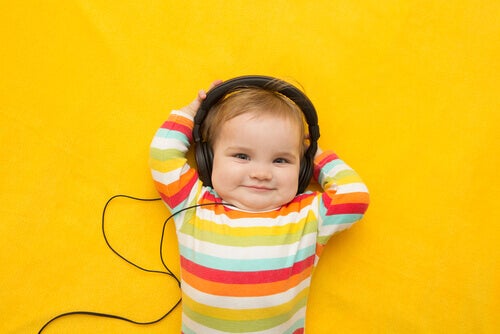Have you ever heard of the “Mozart effect”?Have you ever heard this story that music makes children smarter?Do you know where all these beliefs that connect music to intelligence come from?Have you ever wondered if this statement has a scientific basis?
Many circumstances or activities can help improve children’s intelligence, music is one of them, but not the only one, many studies have tried to establish a link between learning a musical instrument and intelligence, then? Who does not learn to play an instrument will be less intelligent?
- The Baby Mozart project.
- The Mini Einsteins cartoon series and dozens of early stimulation programs and projects have led us to believe that music makes children smarter.
- To achieve this.
- Classical music has been identified as particularly beneficial.
- Highlighting Mozart’s works.
So can you see and see parents and teachers, and even pregnant mothers, play classical music for babies to listen to, take their children to music classes as soon as possible, as if they had discovered the magical ingredient of intelligence?The question then is: Did it really work?
Well, no. Or at least not enough to talk about a remarkable advantage. The idea that playing classical music would make children smarter remains controversial in light of a literature in which there are studies with conflicting results.
The 1993 study that found that music makes children smarter cannot be replicated or expanded experience, i. e. what would be a scientific study was not, in fact, in fact, the idea was a spectacular marketing tool, of which there is no doubt. That.
With all this, I don’t mean music is useless. In fact, music has many benefits for children’s brains and also for the brains of adults. Many researches have focused specifically on evidence of the effect of music on the brain.
It seems that music prepares our brains for certain types of thinking. For example, several surveys have found that after listening to classical music, adults can perform certain spatial tasks more quickly.
But why is this happening? Apparently, the classical musical pathways in our brains are similar to the pathways we use for spatial reasoning, so when we listen to classical music, the space paths are already open?And ready to be used.
This pre-preparation makes it easy to execute spatial tasks, but the effect lasts a short time. Our enhanced spatial skills disappear about an hour after we stop listening to classical music.
However, learning to play an instrument can have more lasting effects on spatial reasoning In several studies, children who took piano lessons for six months improved their skills to solve puzzles and other spatial tasks by up to 30%. In this sense, researchers believe that musical training creates new pathways in the brain.
Children who study music have also been found to improve auditory processing, as brain scans demonstrate, which is important because auditory processing skills are essential for language development, as well as learning a second language or for better focusing on noisy environments.
Other research has also shown that music can improve cognitive functioning and can also help reduce aggression, increase tranquility, reduce stress and improve mood. However, this doesn’t exactly mean that music makes kids smarter.
Everything that has been said before leaves no doubt that music benefits children and adults in many ways, but does it make it smarter?Or improving at school is probably not one of its benefits. Yes, music helps. But not as much as it seems, or at least how they made us believe.
Several studies show that children who take music lessons or receive music education in schools also work better in intellectual activities, but families and schools that invest in music education and other arts of their children are likely to be different in many aspects of families or schools that do. this is probably not the real cause of the observed differences.
Several researchers have attempted to replicate the results of modest gains in intelligence, intellectual skills and academic performance; however, the results of their studies on music education in children have not shown that music makes children smarter, including some of the studies that have revealed losses.
In fact, what we have to do is play and talk to our kids. Snuggle up, kiss us, give them love?Boost creativity, fuel curiosity?
It’s love that makes kids smarter. It’s love that will make your children the best version of themselves.
Does music make kids smarter?Who cares? If you really want your kids to be smarter, spend more quality time with them, a lot of time. This is certainly a much more decisive factor than music. Don’t get me wrong!

